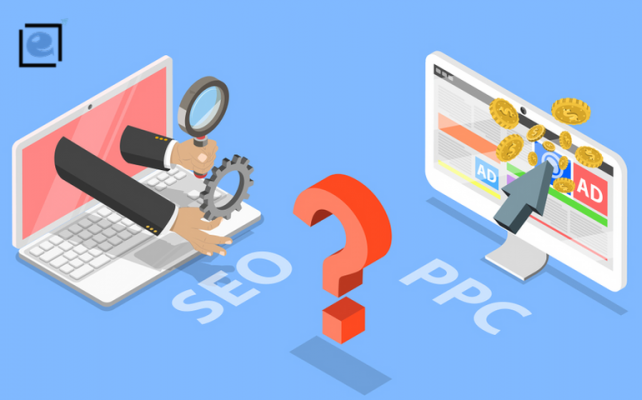How to Optimize Your Google Ads Campaigns for Time of Day

“Which is the right time to run Google Ads” is the most asked question that has a unique answer like your organization.
How often your visitors are more engaged on weekdays or Weekends? At what time does your visitor turn into loyal customers?
When customers make purchases more during Monday or Sunday? You get answers to all such questions using Google Analytics data.
The timings in your Google Analytics report can help to find when your website receives high traffic and high conversion rate.
Know the active timings of your audience and their important actions including, signing up or making a purchase.
This will help you to optimize Google ads perfectly. It’s essential to determine prioritizing your website Google Ads (for example, you are running PPC ads then it’s important to optimize your site to turn Ad grant dollars into your actual money).
How to Find the Right time?
Google Analytics is simple and easy to have a quick look at the peak hours or days on your website. On the home page, you will see the map of the busiest hours and days of your website.
The best way to analyze your website traffic days, and hours is by setting up a custom day and hour report using Google Analytics.
Once you’ve set up these custom features, you can analyze everything easily including your website traffic for each day, and then find your perfect time for running Google Ads by collecting this data.
In addition to this, you can also view Website traffic, target completions, and conversion rates for every day.
For every website, the working hours (when your visitors are searching for specific strategy or resources) then you will easily find the high converting resources on your website and you can keep a track of this.
One of the best advantages to scheduling your Google ads campaigns is that you will be able to find your target audience and then it’s simple to make them take action.
How to determine Google Ads timings?
Google Ads can be optimized for the account of the day such as a specific day in the week, you can schedule your Google ads at the time of days or hours ( when your audience shows interest to convert). The main advantages of this custom ad schedule include:
1. Spend your daily budget even
In Google Analytics, tap the Acquisition button, go to “Google Ads” choose Hours to check you’re spent on Google Ad Grant dollars.
You can easily check your account by spending each day. So if you have evenly spent all your Ad Grant budget, then you will be notified like this:
- You have spent your grant even every day, in your customer’s most active online timings, and your Ad Grant budget will run out around midnight.
If you have spent all your Google Ad dollars every early, I mean before the day ends. Then probably you will receive a message like this:
- Your Google Ads is getting in peak, it will drop out in the middle of the day if you reach most out of your budget. In such cases, like if your ad budget expires before the day ends or early in the midday, then you will miss the huge traffic that searches for related products or services.
You can fix all these issues by maintaining the right custom ad schedule for evenly spending your budget and make sure you run your Google ads at the time of high-interest or high-converting time so that you will surely get complete benefit from Google Ads dollars.
Do you have any ideas related to your audience’s interests and when they are most engaged?
2. Target high search-volume hours
Let’s assume that you have an organization like Greater Than AIDS, and your purpose is to research the people seeking HIV related information.
With Google Trends, you will get to know that at a specific time the search volume for ‘HIV’ is spiking high and that’s how it works.
Then, if your ad budget ends in advance of the specific time, then ultimately you’ll miss out on the interested audience in peak hours.
Using Google Trends, and tools related to keyword research, you will clearly inauthentic topics and issues that people search related to your organizations.
Therefore you can create your schedule to advertise campaigns related to that, including your website organic traffic and understanding your user’s needs.
Likewise, I have mentioned earlier, you can easily target people searching for specific needs such as people searching for HIV information.
You can customize your Ad schedule and run your campaign when needed to make sure that it reaches this kind of audience (the best time for running ads to reach users who search for relevant resources).
3. Target high-converting hours
Driving website traffic is the target of any organization, but it’s equally important to create target audience conversions.
Fortunately, the hour-of-day report helps you to find the conversion rate fluctuations in your website throughout the day.
This helps you to find the times of day that users take action on your website. All you have to do is, make sure that you have structured Google Ads using these hours strategies.
The most appropriate time for running ads is between 11 am to 9 pm, you can follow this strategy too.
But it’s ideal to schedule your Ad campaign based on the high converting visitors and peak hours accordingly.
You can analyze your Google Ads report for hours of the day (tap Acquisition, go to Google Ads and click into Hour of the day) you will find the exact time when your Google Ads traffic is getting the highest conversion rates.
Bottom Line
Schedule your Google Ads campaigns in the peak hours of your audience interest and every organization follows this tactic most widely.
You can implement custom ad schedules for maximizing your website visitors into potential customers or loyal audiences.
Build your online presence for offline impact, cheers!




